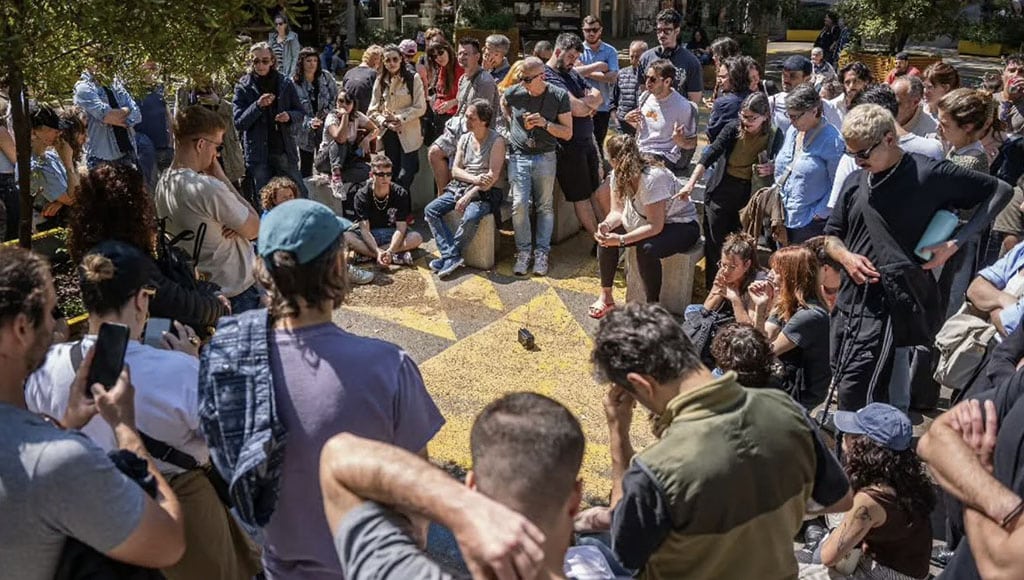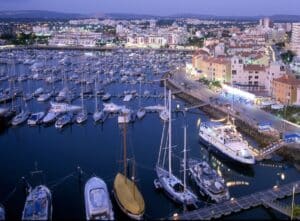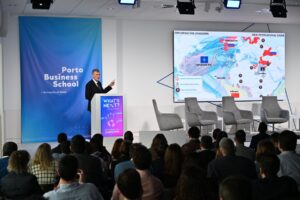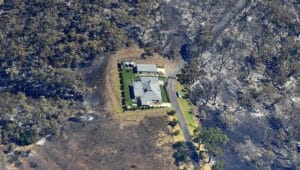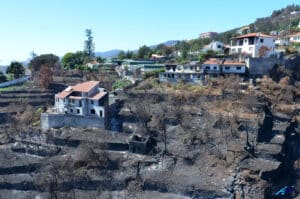Electrical energy is the bloodline of the modern world. Especially the densely populated urban areas of cities have a strong dependency on the steady flow of energy in order for infrastructures to supply residents, businesses and industries. But what if this necessity is disrupted in a blackout?
The ability to effectively communicate was severely tested during a sudden and unprecedented power outage which occurred mainly in Portugal and Spain, starting at 11.33am on Monday, April 28. Many millions of residents were affected, transport and other services disrupted, resulting in losses yet to be calculated.
In a parliamentary debate on April 30, the minister of presidency stressed that the government had tried to communicate with the population through “all channels, from television to social media, from SMS to radio”. However, despite these efforts, many people had no access to information throughout the day, except those listening to car radios or battery-powered radios.
Accurate, timely information
During any major incident, accurate and timely communication with the community is critical. Emergency communications may include alerts and warnings; directives about evacuation, and other self-protective actions; and information about response status, family members, available assistance, and other matters that impact response and recovery. This is even more important when one is talking about a long-term power failure because nearly all common channels of communication will eventually fail.
In other words, communication is not just comfort: it is order, security and guidance. And without it, fear, improvisation and chaos set in.
Television continued to broadcast to a country that most could not see it, revealing a bitter paradox: the presence of information is worthless without access. Devices without batteries fail immediately. Internet-capable devices with battery backup continue running for a few days but are of no use because the corresponding networks are down. What remains are battery-powered radios or car radios.
Luís Mendonça, president of the Portuguese Broadcasting Association, said: “Radio is crucial because, with generators operating in the radio stations and with Civil Protection ensuring their operation through the supply of diesel, it allows anyone anywhere in the country to listen to broadcasts as long as they have a battery-powered radio or a car radio, which is the only way to access credible information.
‘Communication is not just comfort: it is order, security and guidance. And without it, fear, improvisation and chaos set in’
“Radios were the focus of stability and trust” that allowed the transmission of credible information. “The people who rushed to supermarkets were those who got their information from social media and who were alarmed by fake news, by misinformation, which was not what was reported on the radio. And here, too, the difference between reliable sources and destabilizing sources was once again demonstrated,” he points out.
However, with the exception of radio stations with national coverage (for example, Antena 1, Antena 2, Antena 3, TSF, Rádio Comercial, Renascença), most radio stations across the country were unable to broadcast on April 28, including Kiss Fm (English language) radio, due to a lack of generators. Some of them have UPS (Uninterruptible Power Supply) systems, but these last just a few hours, three at most, and are not suitable for situations like the one experienced.
ANEPC SMS messages
A difficulty in communication was demonstrated during one of the most critical moments between 6pm and midnight on Monday, when ANEPC sent a written message to the population. However, only 2.5 million national customers received the SMS. This was well below the usual average of 95% due to power failures affecting the three communications operators (used by ANEPC to distribute SMS messages), who had “technical problems and were unable to disseminate the information in time”.
Apart from SMS, other forms of communication were used, such as social media, radio, and the Civil Protection website, although “this and other forms of alert were compromised by the power failure”. Due to the failure of the internet, the ANEPC website and social media were not accessible to most of the public until power was restored, at stages, later in the day.
Could it happen again?
Two days following the outage, Beatriz Corredor, president of the Spanish Electricity Network, said that the cause of the blackout that affected Spain, Portugal and part of France on Monday has been “more or less localized” but that it is still necessary to analyse “millisecond by millisecond” what happened. The official assured that the incident “will not happen again because we have learned lessons”.
Despite this reassurance, there are many other reasons why electrical grids and power plants are vulnerable. This includes cyberattacks, malware, human error, physical threats including terrorism, and disasters like earthquakes and extreme weather events.
Energy infrastructure increasingly relies on external software providers, cloud services and imported hardware components. Indeed, electricity grids, power plants and distribution networks are considered critical infrastructure, because a disruption can cause widespread economic and social consequences and even threaten national security. It is, therefore, impossible to guarantee that something of this scale will never happen again.
How to be prepared
Being prepared for emergencies, accidents or catastrophes – which often come without, or with little, warning – must be a rule for everyone. In March this year, Brussels asked EU citizens to put together a 72-hour emergency kit to face crises, which should include food, water, and copies of important identity documents, a portable radio, a flashlight, spare batteries, chargers, among other items. Something we have been promoting for years at Safe Communities!
How fortunate were we?
In many ways, Portugal was fortunate that, on that day, there were no other non-related major incidents occurring, such as a major rural fire. How would communities be aware of the incident, how it was progressing or obtaining answers to whether or not they were at risk? What if it (blackout) had occurred in the winter, with sub-zero temperatures, and what about the effect on the elderly living in isolated areas?
We cannot assume that major disasters cannot be simultaneous, especially during periods of extreme high temperatures, which increase the probability of major fires.
There is much to be learned from this emergency. The government has moved forward with the creation of a technical and independent commission, requiring audits from energy, aviation and transport authorities, and has requested an independent audit from the European Union. It is essential that lessons are learned from this, and recommendations implemented as a priority.
The importance of the radio’s role in these events will thus be etched in the memory and ears of citizens. All you need is a radio and batteries so that information never stops reaching everyone!
Lastly, we thank the emergency services who worked tirelessly and did the best they could in such circumstances. Well done.

